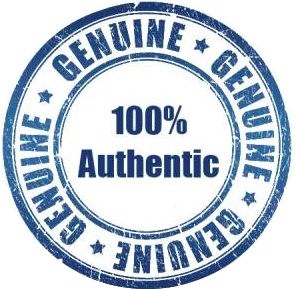 John Grant, author of The New Marketing Manifesto, states that, “Authenticity is the benchmark against which all brands are now judged.” If being authentic is that important, why has it been done so poorly by so many? If honesty and trust are foundation elements for building authentic brands, shouldn’t it be easy?
John Grant, author of The New Marketing Manifesto, states that, “Authenticity is the benchmark against which all brands are now judged.” If being authentic is that important, why has it been done so poorly by so many? If honesty and trust are foundation elements for building authentic brands, shouldn’t it be easy?
Business marketers often site issues relating to creating a consistent experience and message across the organization and/or across channels, staying true to the organization’s origins, and/or delivering on brand/product promises. All valid reasons, but perhaps there is another challenge at the core that goes unnoticed, something that inhibits the organizations ability tobe “real.” Aproblem simple in form, but difficult to detect and correct.
Yes, it is the senior executives, marketers, sales folks and service people themselves. The employees, who as humans, are uniquely influenced, and some may say flawed, by their own perceptions, bias, and motivations. Here are a few flaws that inhibit an organizations ability to be authentic:
- Biased views – research has found that executives, for better or worse, create “business personas” and view the world with that “business hat” on. In some ways, we play a “role” at work that fits a title, area of responsibility, or how others view you, that may not be realistic. Are we being fake? Maybe, maybe not, but if we say one thing, and believe something else that may be at odds with our “persona,” we just might be. It’s phenomenon researchers have observed with consumers their actions don’t necessarily match their words. In the business world, we act in a similar manner and may not realize that we are not being completely honest with ourselves, or with our customers…but they know.
- Refusing to recognize or accept change – customer preferences shift, markets fluctuate, competitors enter and exit, and companies evolve. One of the few certainties in business is that change is a constant. The problem is that many organizations are slow to recognize and react to a change. Even worse they flat out ignore it. As a result, companies continue to live in the past, or recognize the need for change and try to shift overnight. Authenticity involves an emotional connection with an audience and that connection is forged over years through consistency. Consistency builds trust and integrity. Ignoring the reality of your audiences’ world, trying to be something you’re not, or telling customers what you think they want to hear, quickly deteriorates trust and erodes integrity. “Keeping it real” involves keeping your head out of the sand and on the lookout for change, for better or worse. It also involves accepting reality as it is, no matter how painful it might be.
- The need for control – trust is a foundation element, and when we feel like it is lacking it sets off a basic human reaction to seek control over a situation. Inversely, when we trust, a handshake, for example, will often do look at the rise of shared economy companies like Uber, Airbnb. For established companies, take a look at the ever-expanding legal language in contracts and evaluate the impact it might be having on eroding trust with customers. In the business-to-business world, there are some situations where people have to trust each other to be successful and/or make progress. If we make it too complicated, we invite doubt and/or skepticism into the conversation making it difficult to create the foundation for a long-term relationship. Additionally, if we have an established relationship with a customer keep an eye on contracting, service agreements, product delivery language, etc.
I’ve only a listed a few of the “flaws” that challenge companies, many more exist, but multiply these by the number of humans (employees) at your company, and the number of channels an audience has to interact with your brand, and you begin to get a sense of the complexity of business marketing.
How do successful companies do it? How do they create and maintain an authentic message, perception, and/or brand, by building and preserving a strong corporate culture, but allowing for flexibility. As Bill Breen writes in Fast Company “To maintain its integrity, a brand must remain true to its values. And yet, to be relevant—or cool—a brand must be as dynamic as change itself.” Or as Shakespeare might say: “To thine own self be true.”
